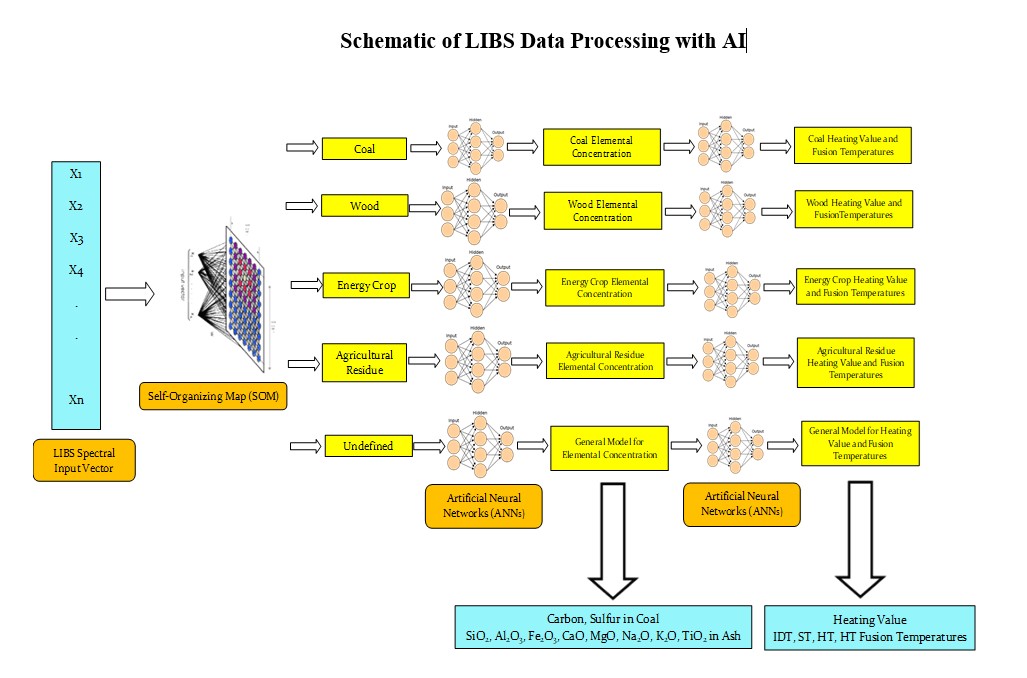The U.S. Department of Energy (DOE) has been incentivizing researchers to identify alternative fuel sources. Hydrogen production has emerged as a frontrunner. The goal is to find new, clean methods to produce hydrogen that will reduce its production cost. This current round of funding supports DOE’s Hydrogen Shot initiative, which aims to reduce the cost of clean hydrogen by 80%, to $1 per 1 kilogram, within a decade. Making hydrogen-based energy more affordable and available will lead to increased use, allowing the U.S. to decrease its carbon footprint in energy production.
DOE Fossil Energy and Carbon Management (FECM) recently awarded six research groups a total of $9.3 million to develop clean hydrogen technologies. Among the six awarded groups is a team from Lehigh University led by PI Carlos Romero, Director of the Energy Research Center and co-Associate Director of Lehigh’s Institute for Cyber Physical Infrastructure and Energy (I-CPIE), which is working on “Machine Learning Enhanced LIBS for Automatic Control of Hydrogen Producing Gasifiers.” The team also includes other Lehigh University personnel, such as Principal Research Scientist Zheng Yao from the Energy Research Center (ERC), Chemical and Biomolecular Engineering Professor Mayuresh Kothare, and graduate and undergraduate students, as well as researchers at the Energy Research Company, University of Utah, Idaho National Laboratory, and SpG Consulting. The group will receive $3.7 million over two years as they develop a novel measurement/control system for the production of hydrogen from biomass, waste plastics, and legacy coal waste feedstocks in fluidized bed and entrained-flow gasifiers.
The proposed project will demonstrate the capabilities of Laser Induced Breakdown Spectroscopy and Machine Learning (LIBS+ML), and a modified gasifier control system to obtain online measurement of heating value of the feedstock to a gasifier running with biomass, non-recyclable plastics, and coal refuse. (Romero and Yao have worked with LIBS previously, having won a DOE Bioenergy Technology Office award in 2023 and a Phase II DOE STTR award in 2023.) Other pertinent feedstock parameters of interest to gasifier operators, such as feedstock proximate analysis and ash oxides, will also be provided by this method.
For this project, DOE asks researchers to advance their gasification energy system component technologies from a Technology Readiness Level (TRL) 4, which is a bench-scale model, to a TRL 6, a working prototype that will show that the process works in the field, under an engineering environment, as intended.
The team will test the feedstock delivery component at one entrained-flow and one fluidized bed gasifier system with both solid and liquid fuels to produce clean H2. In the concept to be demonstrated in this project, on-line measurements from a laser-based technique will be processed by artificial intelligence to produce actionable data, not currently available to gasifier operators in real time. Real-time information, such as heating content of the feed, will be incorporated into the gasifier control system in a modified control scheme to allow adjustment of the feed rate and/or air equivalence ratio to maintain stable operation of the gasifier, and optimize reactor yield and operating cost. The team will assess the technology’s capabilities, determine its operating envelop, document its performance, and perform a techno-economic analysis (TEA) of the technology for gasifier applications.

If the Lehigh team succeeds, they’ll bring hydrogen energy technology a little closer to widespread use in industry and transportation. They’ll also make an impact on the environment. The fuels that they’ll be investigating, such as biomass, non-recyclable plastics, and legacy coal waste, will become sources of renewable energy instead of being dumped into a landfill where they might contribute to environmental harms such as emissions of greenhouse gases and toxic elements such as arsenic, lead, and mercury. The research will also provide gasifier operators with data that will allow them to operate more efficiently and economically as they produce clean hydrogen.
For more than 40 years, the ERC has collaborated with various agencies and industries to address global energy challenges through innovative research, technology development, and student training, focusing today on sustainable power generation, decarbonization, renewable energy and energy storage. The center is affiliated with I-CPIE, which works with a broad research community within Lehigh University, engages with industry and government partners, and supports interdisciplinary research teams.
